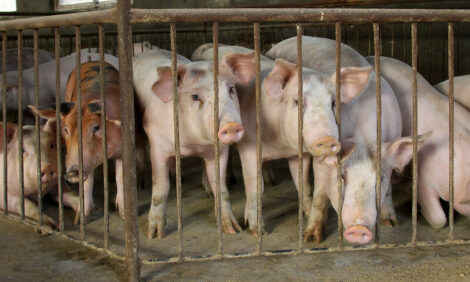



Investigation Finds Drug Traces, Resistant Bacteria in Pork
US - Pork products tested for residues were found to contain some antimicrobial-resistant bacteria and traces of ractopamine.Yersinia enterocolitica, a bacterium that can cause fever, diarrhoea and abdominal pain, was widespread. Consumer Reports found some meat harbouring other potentially harmful bacteria, including salmonella.
Some of the bacteria we found in 198 samples proved to be resistant to antibiotics commonly used to treat people. The frequent use of low-dose antibiotics in pork farming may be accelerating the growth of drug-resistant 'superbugs' that threaten human health.
The study showed about one-fifth of the 240 pork products analysed harboured low levels of the drug ractopamine, which the US approved in 1999 to promote growth and leanness in pigs. It is commonly used in pigs raised for food in the US but is banned in the European Union, China and Taiwan. Consumer Reports experts have said that no drugs should be used routinely in healthy animals to promote growth.
Survey findings
Yersinia enterocolitica was in 69 per cent of the tested pork samples.
100,000 Americans are affected every year, especially children. Salmonella, Staphylococcus aureus or Listeria monocytogenes, more common causes of foodborne illness, was found in three to seven per cent of samples, and 11 per cent harboured Enterococcus, which can indicate fecal contamination and can cause problems such as urinary tract infections.
Some of the bacteria were resistant to multiple drugs or classes of drugs.
Ground pork was more likely than pork chops to harbour pathogens. That is to be expected, since grinding meat provides another opportunity for contamination.
Consumer Reports warns that some antibiotic claims on packaging are misleading. And a “no hormones added“ claim might be true but is meaningless, because hormones are not allowed in pork production.
New York Representative, Louise Slaughter said these revelations are terrifying: "It's getting harder and harder for the food processing industry and the FDA to ignore the fact that the overuse of antibiotics in animals is threatening public health."
Ms Slaughter stated that fast action is needed to rectify current regulations, telling Consumer Reports:"Their half-measures and voluntary guidelines are no longer enough - we must act swiftly to reverse this public health crisis. I have legislation awaiting a vote in Congress to address this problem once and for all- and it's time we pass it into law."
Further ReadingYou can view the full report by clicking here.Go to a related news item on this story by clicking here. |






